You Can Now Order Dodger Stadium Food Directly to Your Couch. We Tried It.
Ben Bergman is the newsroom's senior finance reporter. Previously he was a senior business reporter and host at KPCC, a senior producer at Gimlet Media, a producer at NPR's Morning Edition, and produced two investigative documentaries for KCET. He has been a frequent on-air contributor to business coverage on NPR and Marketplace and has written for The New York Times and Columbia Journalism Review. Ben was a 2017-2018 Knight-Bagehot Fellow in Economic and Business Journalism at Columbia Business School. In his free time, he enjoys skiing, playing poker, and cheering on The Seattle Seahawks.
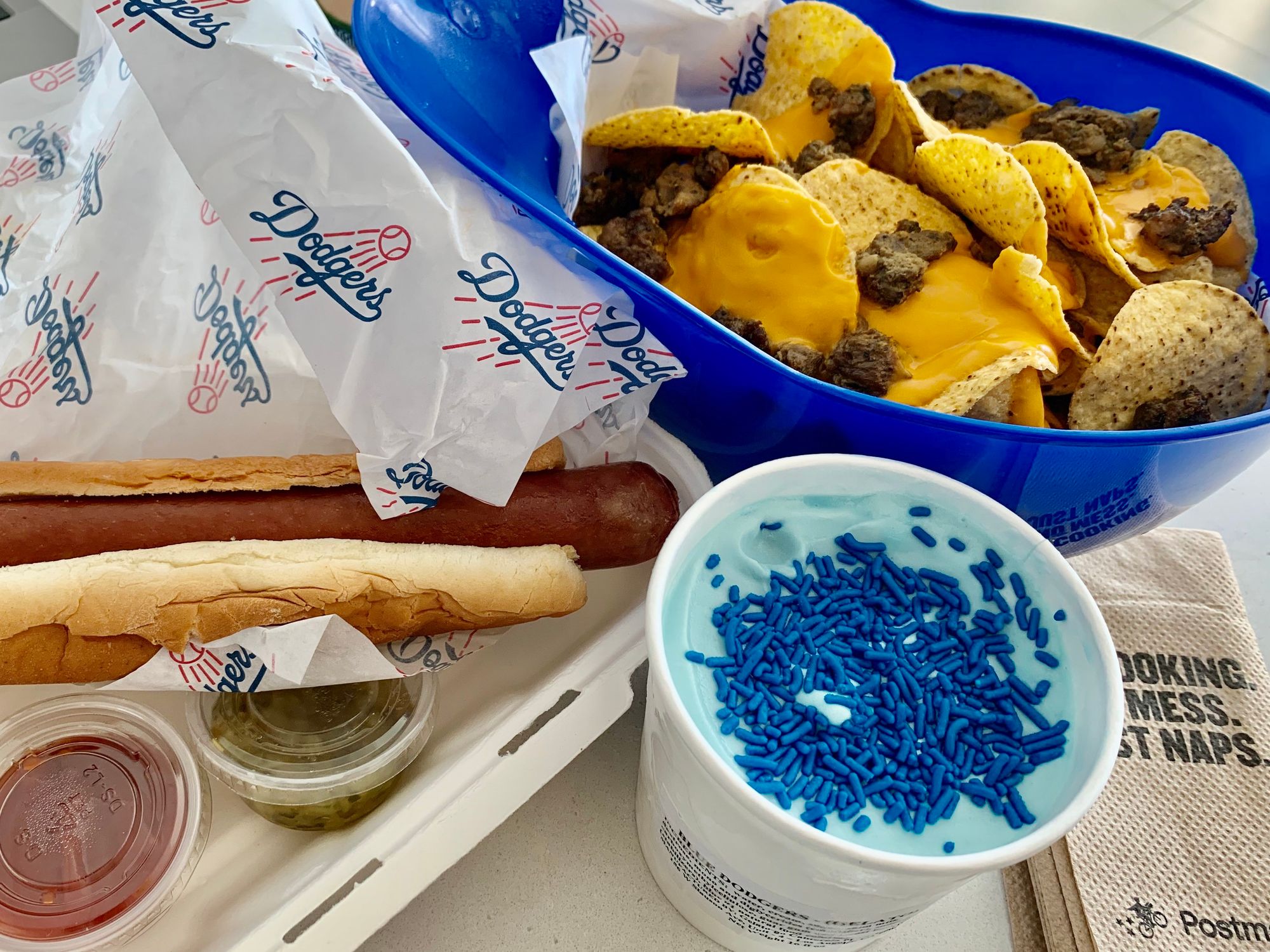
Have you always dreamed of scarfing down a Dodger Dog while sitting in your pajamas on your couch? You're in luck. The Los Angeles Dodgers have teamed with Postmates and Home Team Kitchens to deliver stadium grub to your doorstep.
There are certain rules in life. You consume a giant tub of popcorn and a large soda when you go to the movies, a bowl of chili when you're skiing, and a hot dog and all manner of other sodium rich foods in order to distract you from the dullness of a four-hour baseball game. But this is 2020, where any normal rules have long since gone out of the window and people are craving for any way to have a taste of pre-pandemic days – as long as it can be done from the safety of their home.
Using Postmates or its competitors, one is free to choose from a vast selection of food - sushi from Sugarfish, chicken burgers from Howlin' Ray's, tacos from Guisados. So I was curious to know why anyone would want to order items they normally get only because they are confined to the stadium with nowhere else to go.
"It's comfort food and the kind of thing we need these days," said Mike Jacobs, founder and CEO of Home Team Kitchens.
Interestingly, the Dodgers starting working on a plan to deliver food in February, before the coronavirus starting causing havoc in the U.S.
"The coronavirus accelerated what we thought was a cool brand extension for us," said Tucker Kain, president of Dodgers Business Enterprise, who sees delivery as a good way to keep front of mind for fans. "We want to build a bridge with fans in a meaningful way given that the live experience isn't available."
The Dodgers and Home Team Kitchens think people will want stadium food even when they are not watching a game. "It's great food to have if you're watching Netflix or if you're at work and you want a big serving of nachos," Jacobs said.
The program quietly soft-launched on opening day and started marketing this week when the Dodgers travelled to Houston. Food is prepared out of a single ghost kitchen in Hollywood, but there are plans to expand it to 25 locations throughout Los Angeles so deliveries can be faster and fresher. Jacobs also wants to partner with sports bars to open several dine-in options.
"Demand has been greater than my projections," said Jacobs. "It's double what I was expecting. We're hiring new staff and expediting getting more locations. It's a lot of Dodger Dogs." (Dodger Dogs have also been available in select ampm locations since 2016.)
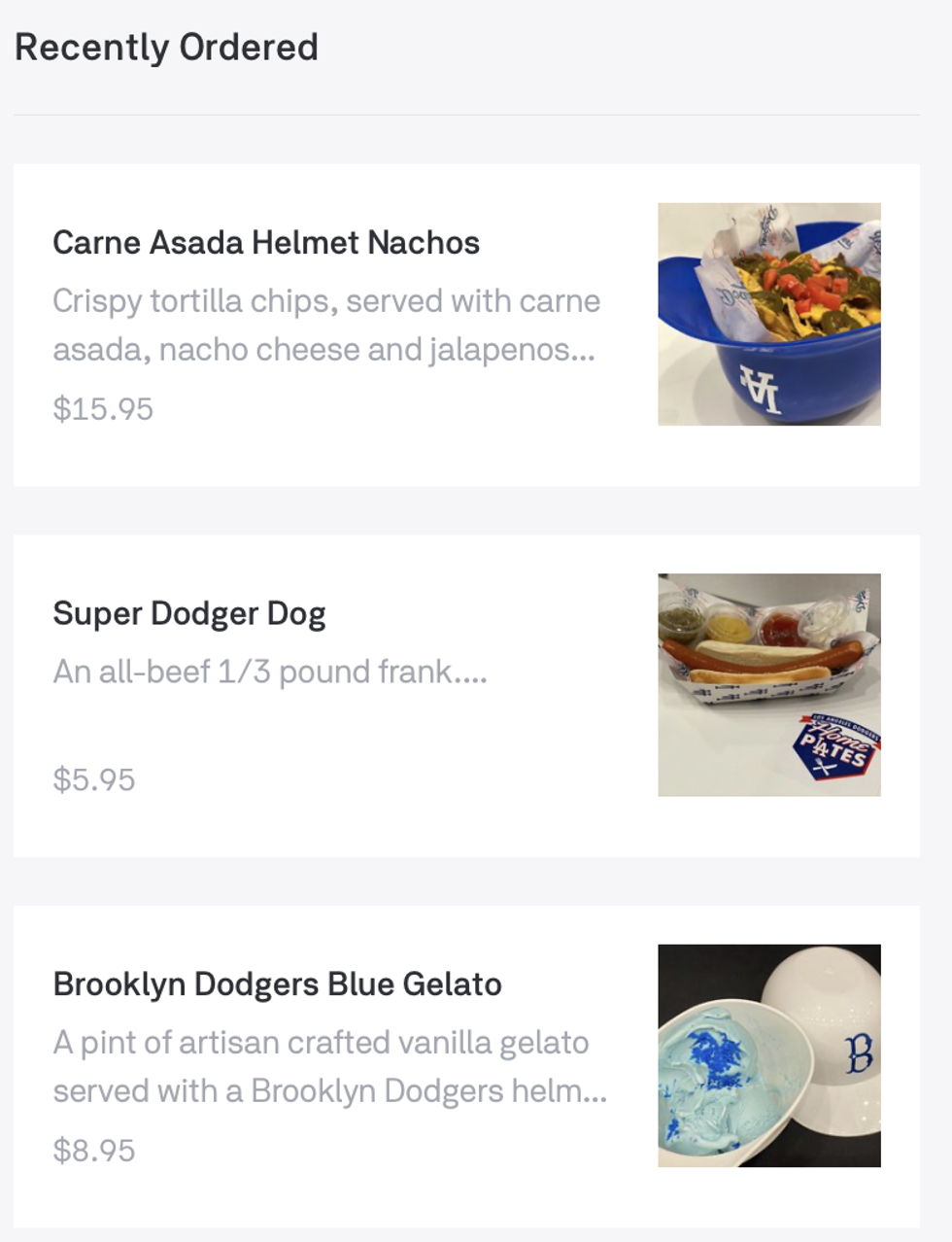
What It's Like Ordering a Dodger Dog at Home
Yesterday, as the Dodgers were preparing for their final game against the dreaded Astros, I opened up Postmates and ordered $30 of food (which came to $50 after taxes, fees, and tip.) Here's how it went.
No standing in line or worrying about missing an at-bat. First pitch was scheduled for a little after 4 p.m. I placed my order at 3:16 p.m. Postmates said my food would arrive no later than 4:20 p.m. to my apartment in downtown L.A. That turned out to be slightly optimistic, as I didn't get a text until 4:24pm notifying me that my order had arrived.
Jacobs sighed when I told him how long it took for me to get my order.
"We're hoping for 30 minutes, but it takes some time to get that right," he said, adding that with more locations the wait times will come down and the food should be hotter.
Super Dodger Dog
They don't call it a cold dog and unfortunately the dog was not even lukewarm. Maybe I should have stuck it in the microwave? I missed the warm foil wrapped version from the ballpark but once I doused it in the ketchup and onions provided, it wasn't bad.
Carne Asada Helmet Nachos
At $15.95, this was my splurge of the night, but I could not resist eating out of a batting helmet and the portion size could probably feed a whole family. The tortilla chips were soft but fortunately not soggy, covered in cheese and generous chunks of asada. But again, the dish was cold so instead of getting the hot cheese you get at the stadium, it had coagulated into globs.
Brooklyn Dodgers Blue Gelato
I was excited to order this because it was advertised as coming in a mini Brooklyn Dodgers helmet but instead mine came in a much less exciting white plastic cup. At least this was the correct temperature though. Proving it's easier to keep cold things cold than hot things hot, the gelato was surprisingly cool and creamy. I took a few small bites and then stuck it in the freezer — one thing you can't do at the ballpark.
The game
Couldn't tell you. I don't get Spectrum SportsNet so I was planning to watch on ESPN, but the game was blacked out there. (I later read the Dodgers won 4-2 in a 13 inning thriller.)
Overall
Eating a cold Dodger Dog at home is an experience everyone should try at least once, but probably no more than that. Delivering warmer food would definitely help, but we are lucky enough to have a lot of great restaurants to choose from in L.A., so the next time I spend $50 on stadium food will be at the stadium.
- You Can Now Order a Dodger Dog to Your Couch. Should You ... ›
- Dodger Fans Finally Experience $100 Million Stadium Upgrades - dot.LA ›
Ben Bergman is the newsroom's senior finance reporter. Previously he was a senior business reporter and host at KPCC, a senior producer at Gimlet Media, a producer at NPR's Morning Edition, and produced two investigative documentaries for KCET. He has been a frequent on-air contributor to business coverage on NPR and Marketplace and has written for The New York Times and Columbia Journalism Review. Ben was a 2017-2018 Knight-Bagehot Fellow in Economic and Business Journalism at Columbia Business School. In his free time, he enjoys skiing, playing poker, and cheering on The Seattle Seahawks.


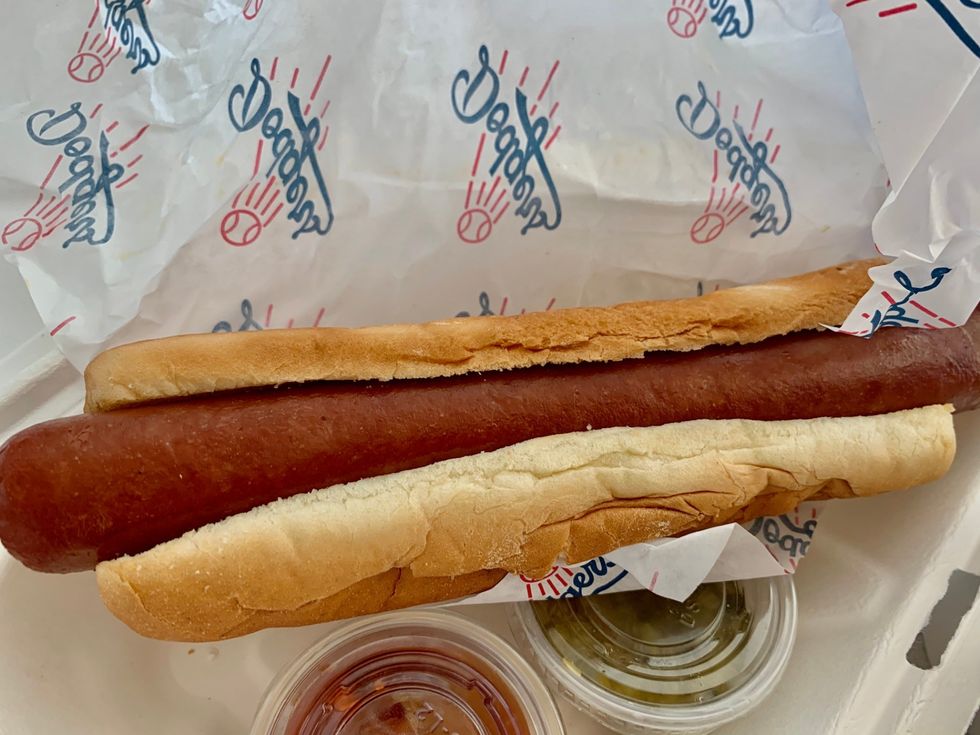
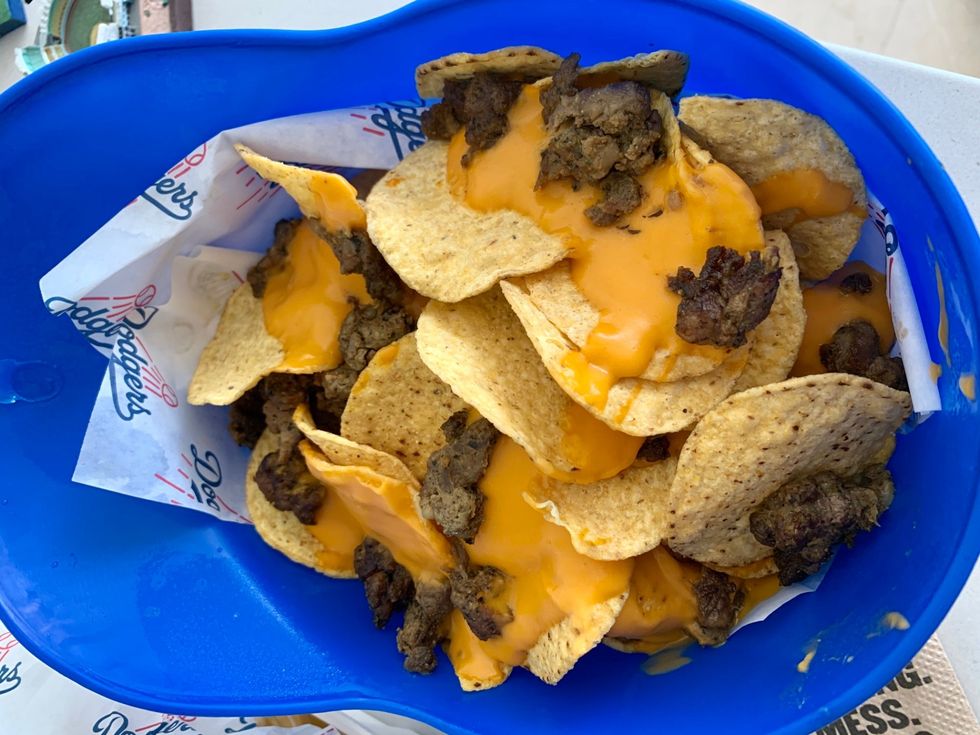
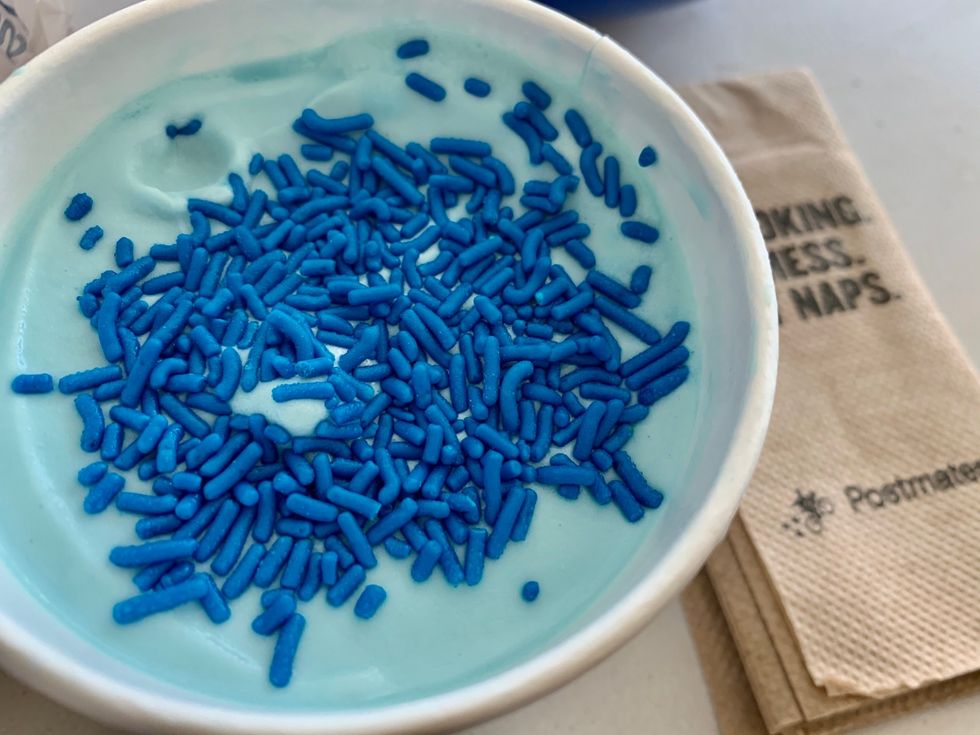

 Image Source: Skyryse
Image Source: Skyryse
 Image Source: Northwood Space
Image Source: Northwood Space